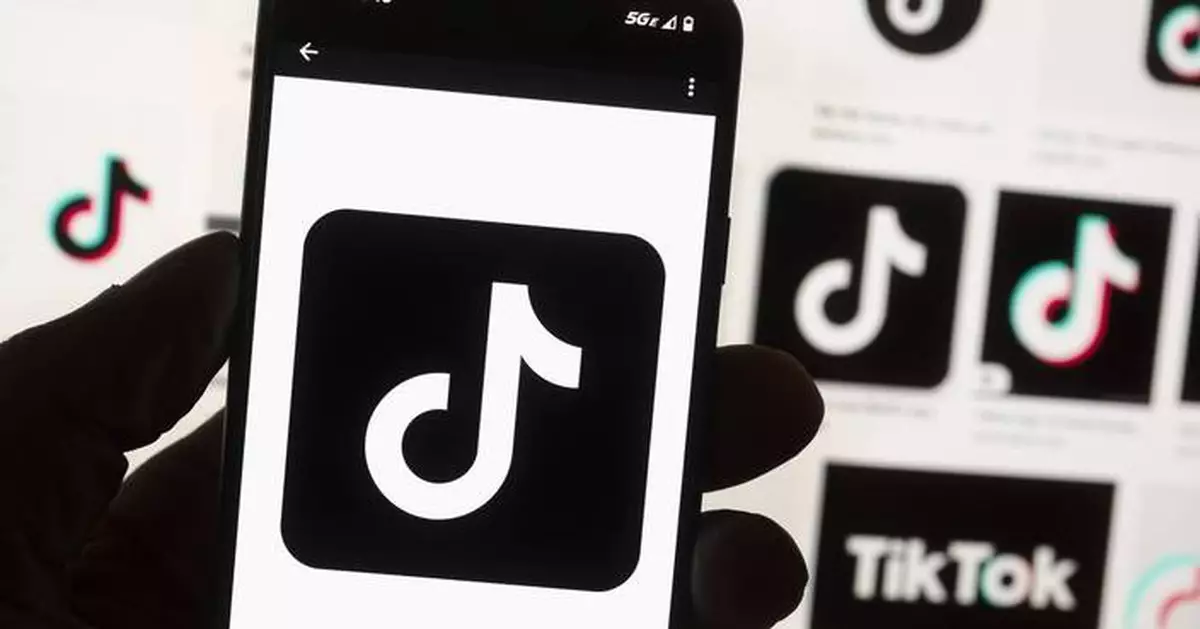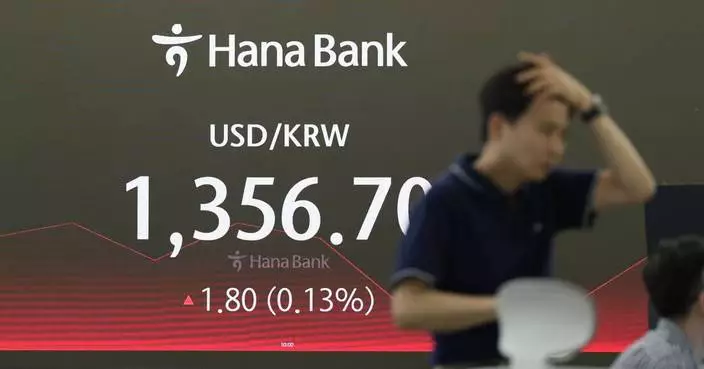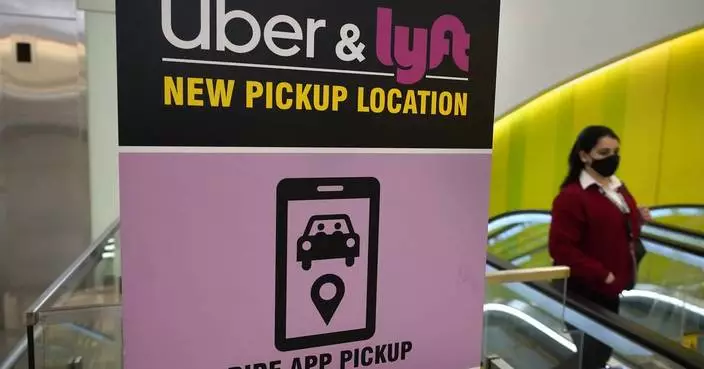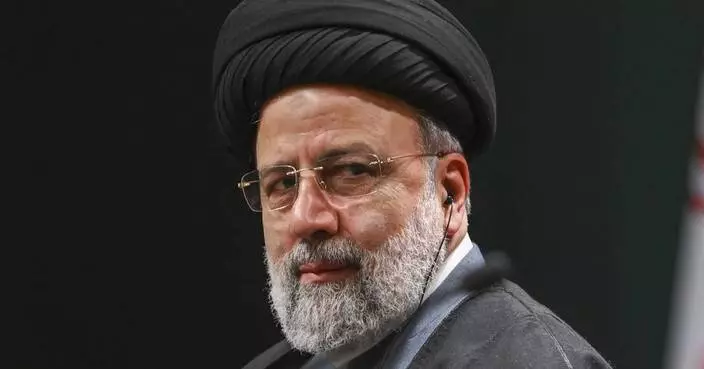TikTok will begin labeling content created using artificial intelligence when it's been uploaded from outside its own platform in an attempt to combat misinformation.
“AI enables incredible creative opportunities, but can confuse or mislead viewers if they don’t know content was AI-generated,” the company said in a prepared statement Thursday. “Labeling helps make that context clear—which is why we label AIGC made with TikTok AI effects, and have required creators to label realistic AIGC for over a year.”
TikTok's shift in policy is part of an broader attempt in the technology industry to provide more safeguards for AI usage. In February Meta announced that it was working with industry partners on technical standards that will make it easier to identify images and eventually video and audio generated by artificial intelligence tools. Users on Facebook and Instagram users would see labels on AI-generated images.
Google said last year that AI labels are coming to YouTube and its other platforms.
A push for digital watermarking and labeling of AI-generated content was also part of an executive order that U.S. President Joe Biden signed in October.
TikTok is teaming up with the Coalition for Content Provenance and Authenticity and will use their Content Credentials technology.
The company said that the technology can attach metadata to content, which it can use to instantly recognize and label AI-generated content. TikTok said it began to deploy the technology Thursday on images and videos and will be coming to audio-only content soon.
In coming months, Content Credentials will be attached to submissions made on TikTok, which will remain on the content when downloaded. This will help identify AI-generated material that's made on TikTok and help people learn when, where and how the content was made or edited. Other platforms that adopt Content Credentials will be able to automatically label it.
“Using Content Credentials as a way to identify and convey synthetic media to audiences directly is a meaningful step towards AI transparency, even more so than typical watermarking techniques,” Claire Leibowicz, head of the AI and Media Integrity Program at the Partnership on AI, said in a prepared statement. "At the same time we need to better understand how users react to these labels and hope that TikTok reports on the response so that we may better understand how the public navigates an increasingly AI-augmented world.”
TikTok said it's the first video-sharing platform to put the credentials into practice and will join the Adobe-led Content Authenticity Initiative to help push the adoption of the credentials within the industry.
“TikTok is the first social media platform to support Content Credentials, and with over 170 million users in the United States alone, their platform and their vast community of creators and users are an essential piece of that chain of trust needed to increase transparency online,” Dana Rao, Adobe's executive vice president, general counsel and chief trust officer, said in a blog post.
TikTok's policy in the past has been to encourage users to label content that has been generated or significantly edited by AI. It also requires users to label all AI-generated content where it contains realistic images, audio, and video.
“Our users and our creators are so excited about AI and what it can do for their creativity and their ability to connect with audiences.” Adam Presser, TikTok’s Head of Operations & Trust and Safety told ABC News. “And at the same time, we want to make sure that people have that ability to understand what fact is and what is fiction.”
The announcement initially came on ABC’s “Good Morning America” on Thursday.
TikTok's AI actions come just two days after TikTok said that it and its Chinese parent company, ByteDance, had filed a lawsuit challenging a new American law that would ban the video-sharing app in the U.S. unless it’s sold to an approved buyer, saying it unfairly singles out the platform and is an unprecedented attack on free speech.
The lawsuit is the latest turn in what’s shaping up to be a protracted legal fight over TikTok’s future in the United States — and one that could end up before the Supreme Court. If TikTok loses, it says it would be forced to shut down next year.

FILE - The TikTok logo is displayed on a mobile phone in front of a computer screen, Oct. 14, 2022, in Boston. TikTok will begin labeling content created using artificial intelligence when it's uploaded from certain platforms. TikTok says its efforts are an attempt to combat misinformation from being spread on its social media platform. The announcement came on ABC's “Good Morning America” on Thursday, May 9, 2024. (AP Photo/Michael Dwyer, File)
LONDON (AP) — WikiLeaks founder Julian Assange faced a hearing Monday in the High Court in London that could end with him being sent to the U.S. to face espionage charges, or could provide him another chance to appeal his extradition.
The outcome will depend on how much weight judges give to assurances U.S. officials have provided that Assange’s rights won’t be trampled if he goes on trial.
In March, two judges rejected the bulk of Assange's arguments but said he could take his case to the Court of Appeal unless the U.S. guaranteed he would not face the death penalty if extradited and would have the same free speech protections as a U.S. citizen.
The court said that if Assange, who is an Australian citizen, couldn’t rely on the First Amendment then it was arguable his extradition would be incompatible with the European Convention on Human Rights, which also provides free speech and media protections.
The U.S. has provided those reassurances, though Assange's legal team and supporters argue they are not good enough to rely on to send him to the U.S. federal court system.
The U.S. said Assange could seek to rely on the rights and protections of the First Amendment but that a decision on that would ultimately be up to a judge. In the past, the U.S. said it would argue at trial that Assange is not entitled to the constitutional protection because he is not a U.S. citizen.
“The U.S. has limited itself to blatant weasel words claiming that Julian can ‘seek to raise’ the First Amendment if extradited,” his wife, Stella Assange, said. "The diplomatic note does nothing to relieve our family’s extreme distress about his future — his grim expectation of spending the rest of his life in isolation in U.S. prison for publishing award-winning journalism.”
Assange, 52, has been indicted on 17 espionage charges and one charge of computer misuse over his website’s publication of a trove of classified U.S. documents almost 15 years ago. American prosecutors allege that Assange encouraged and helped U.S. Army intelligence analyst Chelsea Manning to steal diplomatic cables and military files that WikiLeaks published.
Commuters emerging from a Tube stop near the courthouse couldn’t miss a large sign bearing Assange’s photo and the words, “Publishing is not a crime. War crimes are.” Scores of supporters gathered outside the neo-Gothic Royal Courts of Justice chanting “Free Julian Assange” and “Press freedom, Assange freedom.”
Some held a large white banner aimed at President Joe Biden, exhorting: “Let him go Joe.”
Assange's lawyers say he could face up to 175 years in prison if convicted, though American authorities have said any sentence would likely be much shorter.
Assange’s family and supporters say his physical and mental health have suffered during more than a decade of legal battles, which includes seven years spent inside the Ecuadorian Embassy in London from 2012 until 2019. He has spent the past five years in a British high-security prison.
Assange’s lawyers argued in February that he was a journalist who exposed U.S. military wrongdoing in Iraq and Afghanistan. Sending him to the U.S., they said, would expose him to a politically motivated prosecution and risk a “flagrant denial of justice.”
The U.S. government says Assange's actions went way beyond those of a journalist gathering information, amounting to an attempt to solicit, steal and indiscriminately publish classified government documents.
If Assange prevails Monday, it would set the stage for an appeal process likely to extend what has already been a long legal saga.
If the court accepts the word of the U.S., it would mark the end of Assange’s legal challenges in the U.K., though it’s unclear what would immediately follow.
His legal team is prepared to ask the European Court of Human Rights to intervene. But his supporters fear Assange could be transferred before the court in Strasbourg, France, could halt his removal.
Judges Victoria Sharp and Jeremy Johnson may also postpone issuing a decision.
If Assange loses in court, he still may have another shot at freedom.
Biden said last month that he was considering a request from Australia to drop the case and let Assange return to his home country.
Officials provided no other details but Stella Assange said it was “a good sign” and Australian Prime Minister Anthony Albanese said the comment was encouraging.

FILE - WikiLeaks founder Julian Assange being taken from court, where he appeared on charges of jumping British bail seven years ago, in London, Wednesday May 1, 2019. Assange faces what could be his final court hearing in England over whether he should be extradited to the United States to face spying charges. (AP Photo/Matt Dunham, File)

London court to decide whether WikiLeaks founder Assange is extradited to the US

London court to decide whether WikiLeaks founder Assange is extradited to the US













